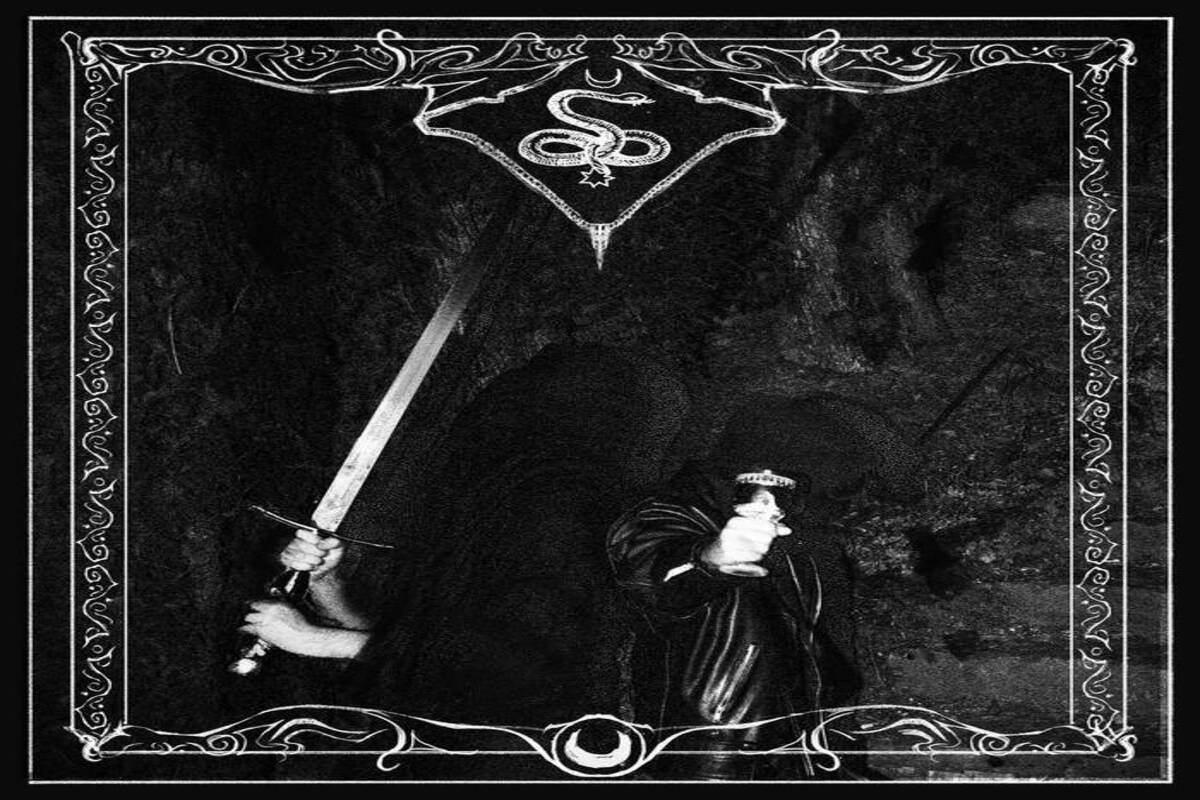Abadir Interview
The Interview — Abadir: A Weapon of Ritual Clarity
Forged in the depths of sonic extremity, Abadir channels the raw force of black metal into a weapon of ritual clarity. Their sound is unrelenting, their themes steeped in Greek myths, cosmic defiance, and a hollow pagan atmosphere dread.
This interview descends into Abadir’s creative furnace—where black metal becomes a vessel for ritual expression and thematic exorcism. Guided by the band’s founding forces, we journey through the smoke and fracture, answering thirteen questions.
Thirteen Questions Beneath the Blade
Q1: Abadir emerged as a duo of Askios and Δ—what spiritual or sonic alignment summoned this union in 2024?
Askios & Δ: Δ and I met in 2024 out of a desire to create a black metal project, In 2024 our paths crossed at the right moment and the first meeting at the Centrale rock pub (Erba) was significant for the evolution of the project.
Q2: You define your sound as Anticosmic black metal—how do its sonic and spiritual elements diverge from traditional black metal, and what doctrine guides its creation?
Askios & Δ: The elements, as well as in the sounds, are prevalent in the lyrics which partly express our negative vision of modern society. When we say antikosmos we don’t mean a simple sterile rejection of the world but a spiritual opposition to modernity and its decay. Musically, this tension manifests as a constant clash between chaos and order, brutality and solemnity.
Q3: Your music channels existential fire—a title that offers no ambiguity. or something else entirely?
Askios & Δ: We see Antikosmos as an aggressive impact in modern Black metal which in our opinion is losing, at least in part, the true spiritual and raw essence of it. Each track talks about Greek history and deities apparently, but there is a strong meaning behind it
Q4: Tracking guitars by candlelight in an underground space —how did that ritual setting sculpt the album’s atmosphere and texture?
Askios & Δ: It was not just aesthetic. Recording in that setting created isolation and total focus. The living flame helped me, Askios, shape the sound into something visceral, more in line with our ritual vision.
Q5: Abadir balances raw aggression with solemn invocation—how do you divide creative roles between Askios and Δ to maintain that duality?
Askios & Δ: To shape these atmospheres, beyond the riffs and rhythms, the mixing by Δ was crucial in giving the album its dark and raw essence. With Δ channeling the vocals and certain atmospheric layers, and me focusing on the guitars and structures, our shared input preserves the duality that defines Abadir
Q6: If each track is a deity,which one do you feel most possessed by— and has that presence changed since the album’s release?
Askios & Δ: It represents values such as honor and respect, concepts forgotten by modern man. That presence still resonates with us constantly.
Q7: The cover photograph possesses a striking atmosphere. Could you share the story behind its creation, and how it came to visually embody the essence of Antikosmos?
Askios & Δ: The cover was a shot by a friend, then drawn and subsequently modified by Δ, the place is the war memorial of the city of Erba of which I (Askios) am originally from.
Q8: Italian lyrics carry a distinct cadence—do certain words hold ritual gravity that transcends translation?
Askios & Δ: I believe that you can translate the lyrics, if you want, but you won’t truly capture the essence in the immediate while listening.
Q9: You’ve embraced DIY for total control—how does autonomy protect the purity ofyour vision in a genre often shaped by legacy and label?
Askios & Δ: For us it is essential. Doing everything on our own means no compromises, no need to answer to anyone. Black metal, above all, should remain absolute freedom.
Q10: You’ve expressed caution toward AI in music—how do you define authenticity in an age of synthetic creation?
Askios & Δ: Authenticity lies in human experience, suffering, contemplation, imperfection. AI can mimic forms but it cannot embody spirit. That is what separates creation from simulation.
Q11: Your lyrics draw from pagan philosophy and esoteric thought—do you see Antikosmos as a philosophical system, a spiritual warning, or a poetic invocation?
Askios & Δ: I see it as a poetic form of philosophy. It does not aim to impose a closed system, but to evoke images, warnings, and invocations each listener can interpret through their own path.
That’s the album atmosphere you all should feel
Q12: If your lyrics were unearthed centuries from now, what truths or warnings would you hope they carry forward— and what misreadings would you fear most?
Askios & Δ: I would hope the message of remembering one’s roots and resisting spiritual essence will remain. I would fear most that it could be reduced to mere nihilism, just because of the album title and the genre, but I hope it will reach something higher in the listener.
Q13: If Abadir were to perform a live rite in a sacred ruin, what would the ceremonial setup entail—props, lighting, invocation, atmosphere?
Askios & Δ: No spoilers…Stay tuned. Thanks for Athenaeum Of Sin this fantastic interview!
